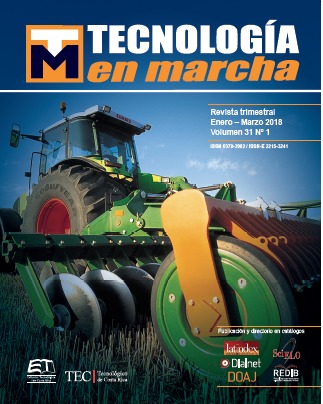Aplicación de métodos agregados en la detección de puntos atípicos en series de tiempo meteorológicas
Contenido principal del artículo
Resumen
Para este trabajo de investigación, se estudió el desempeño de los métodos agregados en la detección de valores atípicos punto en series temporales uni-variables meteorológicas, utilizando la métrica F1 como medida de desempeño. Para esto se creó un programaque permite aplicar 3 clasificadores no agregados (regresión de soporte vectorial, ARIMA, redes bayesianas) y 3 clasificadores agregados (apilamiento, bagging y AdaBoost) a 3 conjuntos de datos de mediciones meteorológicas (precipitación, temperatura máxima y radiación solar).
Usando esta aplicación, se ejecutó un diseño experimental para comparar los clasificadores. En este diseño, primero se obtuvo el promedio de F1 de los clasificadores realizando múltiples pruebas en cada conjunto de datos. Luego, mediante una prueba estadística de hipótesis se compararon los promedios obtenidos por los clasificadores para determinar si las diferencias observadas eran significativas. Finalmente, se realizó un análisis de los resultados, enfocado en comparar el desempeño de los clasificadores agregados contra el desempeño del mejor clasificador no agregado en cada conjunto de datos.
En general se encontró que es posible mejorar significativamente el desempeño al detectar valores atípicos punto en algunas series temporales uni-variables utilizando métodos agregados. Sin embargo, para lograr esta mejora se deben reunir condiciones que, aunque varían dependiendo del método agregado, en general apuntan a mejorar la diversidad de los clasificadores base. Cuando no se reúnen estas condiciones, los métodos agregados no tuvieron una diferencia significativa en el desempeño con respecto al algoritmo no agregado que obtuvo el mejor desempeño en el conjunto de datos.
Detalles del artículo
Los autores conservan los derechos de autor y ceden a la revista el derecho de la primera publicación y pueda editarlo, reproducirlo, distribuirlo, exhibirlo y comunicarlo en el país y en el extranjero mediante medios impresos y electrónicos. Asimismo, asumen el compromiso sobre cualquier litigio o reclamación relacionada con derechos de propiedad intelectual, exonerando de responsabilidad a la Editorial Tecnológica de Costa Rica. Además, se establece que los autores pueden realizar otros acuerdos contractuales independientes y adicionales para la distribución no exclusiva de la versión del artículo publicado en esta revista (p. ej., incluirlo en un repositorio institucional o publicarlo en un libro) siempre que indiquen claramente que el trabajo se publicó por primera vez en esta revista.

